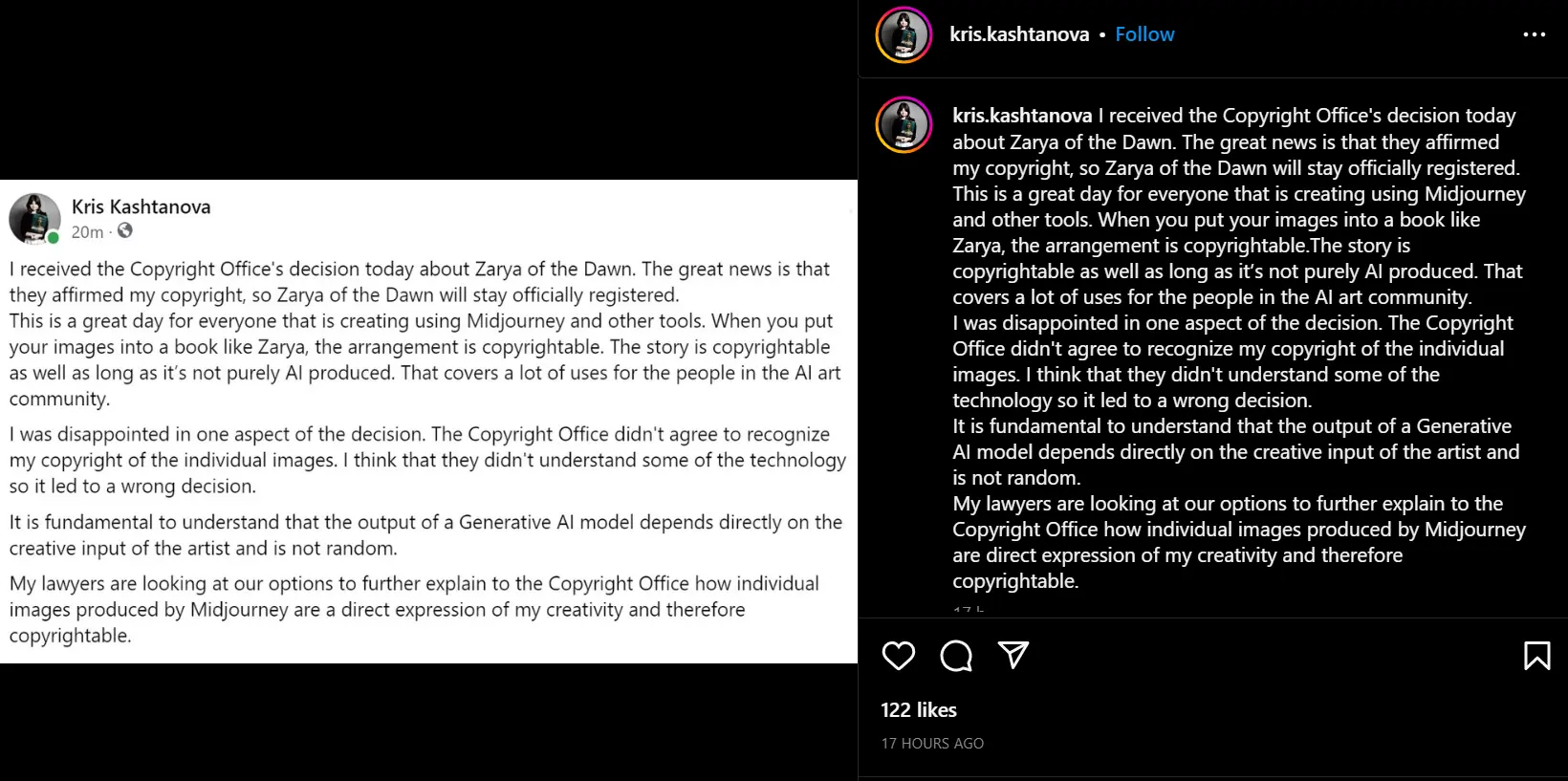Generative AI is gaining popularity among users. Artists are turning to programs such as Midjourney or Dall-E to present an idea using a simple text prompt. This leads to a new skill called “prompt engineering,” which refers to finding the right combination of words and phrases to achieve what you desire from an AI program.
A new U.S. ruling has changed this. Copyright Office has ruled that just coming up with the right prompt isn’t enough to be considered creative work. The office decided that artwork created using AI can’t be copyrighted.
The copyright office was looking at a graphic novel called Zarya of the Dawn by Kris Kashtanova, which featured images created using Midjourney. In a letter, the office informed Kashtanova that copyright protection would be granted for the parts you wrote and selected but not for AI-generated images since it was “not the product of human authorship.”
The Copyright Office stated that copyright does not apply to non-human authorship. Now, the office will issue a new registration to Kashtanova’s graphic novel with the images omitted because the original submission for copyright didn’t disclose the use of AI.
Kashtanova claimed their copyright should extend to their artwork too. Each artist would have a different prompt that would produce different images.

The office argued that prompts were more like suggestions and not orders, and that spending time and effort with an AI generation tool does not imply authorship or ownership.
ChatGPT, Dall-E, Mid Journey, and other tools make waves because they can be used for various purposes. These include test-taking, visual design, and simple text prompts. Google and Microsoft, two of the largest tech companies in the world, are trying to grab a piece of the generative AI market. By developing new products and upgrading existing ones with AI, companies like Google and Microsoft are vying for a piece of the generative AI capabilities.
The use of Generative AI has sparked a heated discussion regarding copyright, as human artists are accusing both companies and programs of enabling the replication of their work. These tools are trained using images and artwork with the aid of AI, which has led to a significant problem and resulted in legal action being taken. A prime example of this is the lawsuit filed by Getty Images against Stability AI for their unlawful copying and processing of copyrighted materials.
A group of artists had also filed a class-action lawsuit against platforms like Stability AI. After discovering their artwork had been used to train AI Models, they filed a class-action lawsuit.
Kashtanova stated that despite the Copyright Office’s refusal to protect their Midjourney-generated art, the decision still protects many aspects of the AI art community.
This verdict could offer creatives a better understanding of the level of original work required when using such AI tools. Midjourney’s general attorney, Max Sills, told reporters that the decision was a “great victory” because it shows that the resulting output is safeguarded if an artist uses tools like Midjourney to generate images for their work.
Related Stories:
